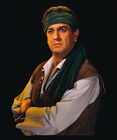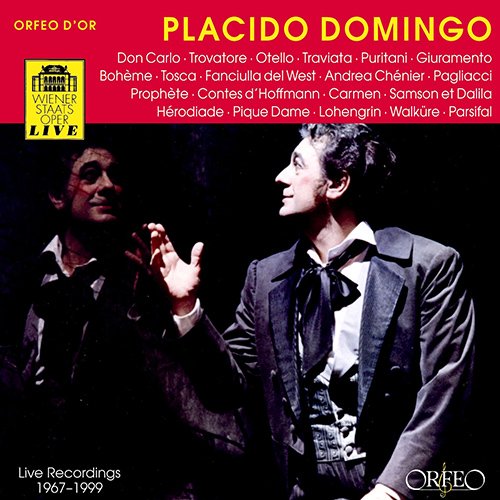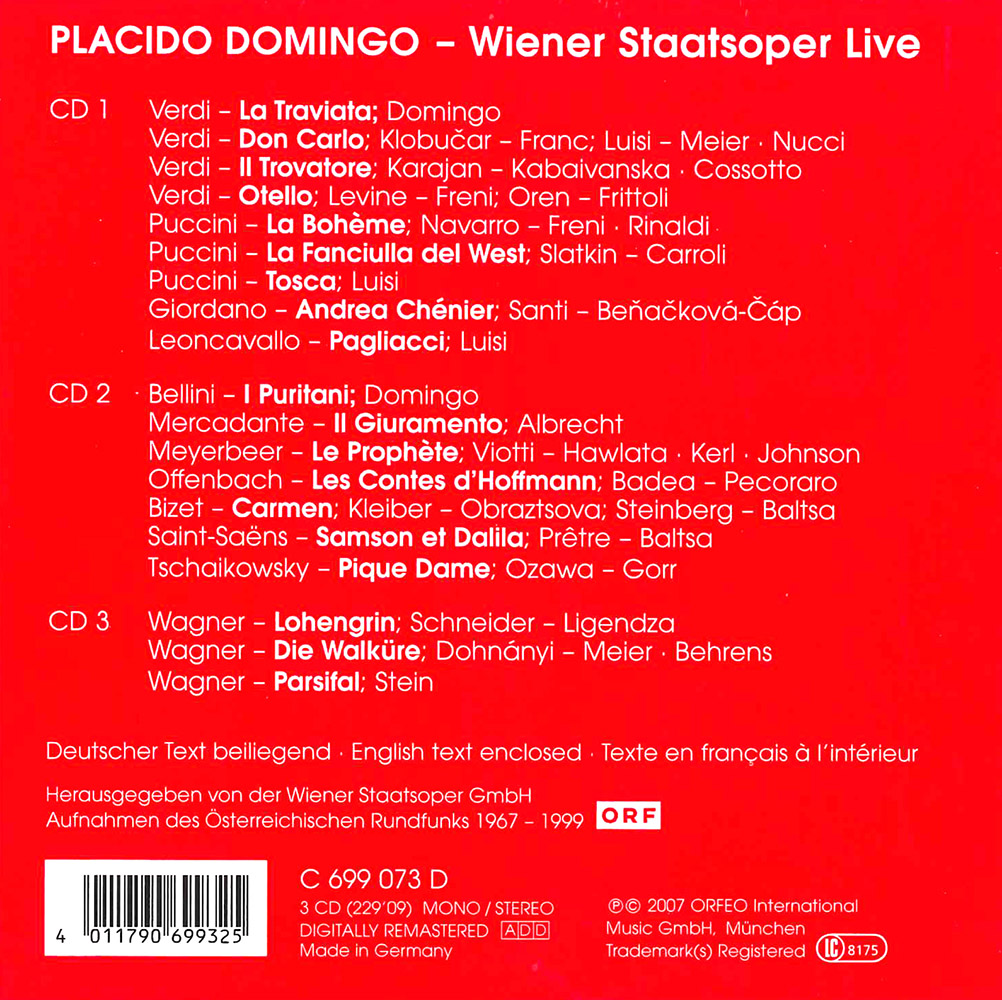Don Carlo - Trovatore - Otello - Traviata - Puritani - Giuramento - Bohème - Tosca - Fanciulla del West - Andrea Chénier - Pagliacci - Prophète
There are almost certainly no superlatives left to describe 
Plácido Domingo, Il Trovatore in 1979
Foto: Archive of the Vienna State OperaPlácido Domingo and his standing in the international world of opera today. The fortieth anniversary of his Vienna Opera State début is a further milestone in a career that the tenor, conductor and opera house administrator continues to pursue with unflagging energy. He first appeared on the stage of the Vienna State Opera on 19 May 1967, when he sang the role of the Spanish Infante in Verdi's Don Carlo. Since then he has regularly added to his repertory in Vienna, while also choosing the house to bid farewell to some of his leading roles. Orfeo's new album of highlights from his performances at the Vienna State Opera thus includes his role débuts as Siegmund in Die Walküre and as Jean de Leyde in Meyerbeer's Le prophète as well as his farewell performances as Puccini's Rodolfo and Cavaradossi. In every one of these cases he generates the same storms of enthusiasm as those that attended virtually all his appearances in Vienna. 
Plácido Domingo, Tosca in 1984
Foto: Archive of the Vienna State OperaHis performance as Don Carlo in 1967 was recorded by the house's own technicians and provides the starting point for a traversal of a seemingly boundless repertory that ranges from individual appearances such as Viscardo in Mercadante's Il giuramento to the roles with which he was most closely identified – Otello, Canio, Don José, Hoffmann, Andrea Chénier and Parsifal. Our selection ends with the role of Hermann in Tchaikovsky's Queen of Spades, which Domingo sang under the house's current music director, Seiji Ozawa. But it also includes duets with long-standing partners such as Mirella Freni (Mimì and Desdemona), Agnes Baltsa (Carmen and Delilah) and Waltraud Meier (Eboli and Sieglinde), in every case producing fascinating performances in which the singers invariably strike sparks off one another. The conductors of these excerpts are all eminent practitioners of their trade – they include not only Ozawa but also Herbert von Karajan, Carlos Kleiber, Christoph von Dohnányi, Georges Prêtre and James Levine – and they are joined for the final tracks by Domingo himself in repertory performances of Carmen and La traviata and in a new production of Bellini's I puritani recorded on its first night in 1994. Although the present three-CD set marking the fortieth anniversary of Domingo's Vienna State Opera début may turn out to represent no more than an intermediary stage in his career, it will none the less reflect an important chapter in the story of the living legend that is Plácido Domingo.

















